Experience Baltimore with Mike Fielder & The Key Home Team: Your Trusted Real Estate Guides
Embark on your home-buying journey with confidence. Explore top listings and access essential buyer tools. Connect with Mike Fielder, Baltimore's premier Realtor, for a seamless experience.
Featured Listings: Curated by Mike Fielder and The Key Home Team
Discover handpicked properties that epitomize the best of Maryland's real estate. Click through to view recent and noteworthy listings.
- 1/72 72
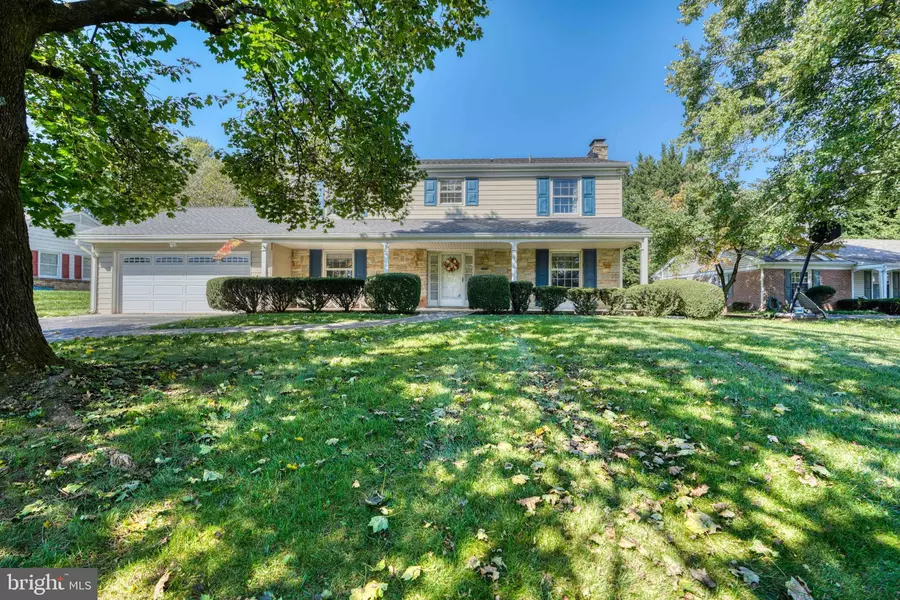 New
New$699,000
4 Beds3 Baths2,180 SqFt1404 MIDMEADOW RD, Towson, MD 21286
Single Family Home
MLS# MDBC2110070
Listed by Kimberly P Caspari of MD Real Estate Brokerage

- 1/24 24
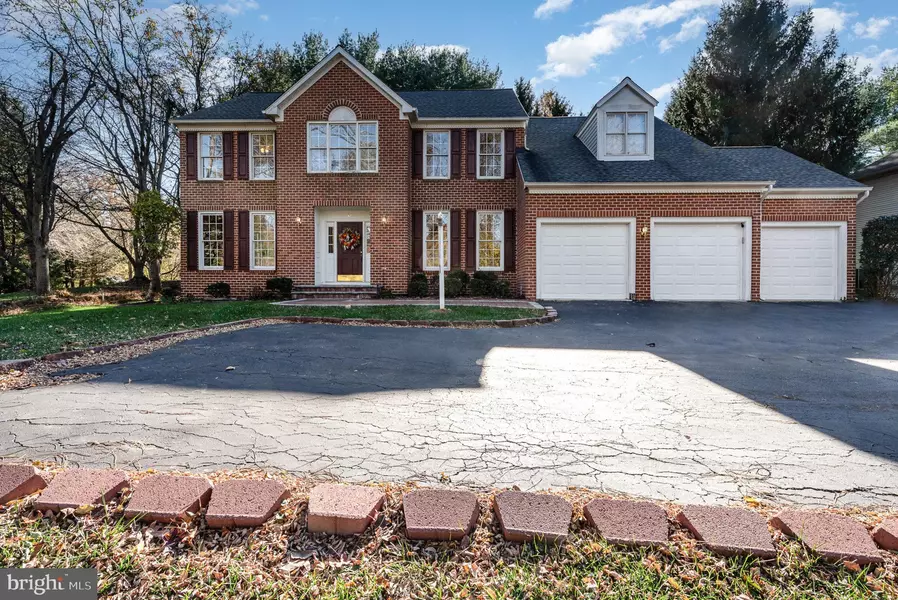 New
New$988,000
5 Beds3 Baths3,472 SqFt17 CASTLEWALL CT, Lutherville Timonium, MD 21093
Single Family Home
MLS# MDBC2110636
Listed by Melanie A James of Berkshire Hathaway HomeServices Homesale Realty

- 1/42 42
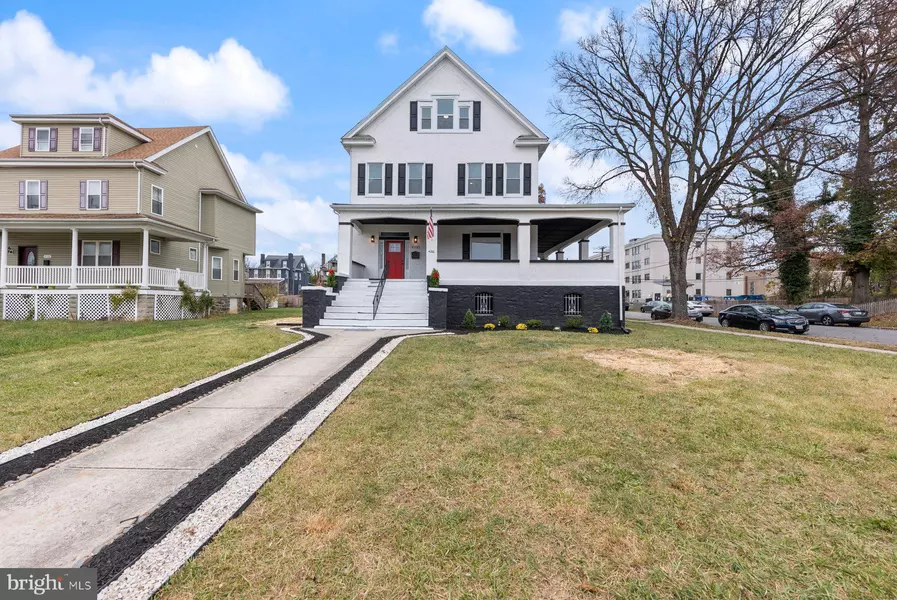 New
New$639,900
8 Beds5 Baths4,915 SqFt4100 MAINE AVE, Baltimore, MD 21207
Single Family Home
MLS# MDBA2138252
Listed by Sean Hutchens of VYBE Realty

- 1/89 89
 New
New$639,000
5 Beds4 Baths3,688 SqFt313 DAPHNE CT, Reisterstown, MD 21136
Single Family Home
MLS# MDBC2111756
Listed by Kobi I Enwemnwa of Fairfax Realty Premier

- 1/72 72
 Coming Soon
Coming Soon$809,000
4 Beds3 Baths3,323 SqFt707 WHITE OAKS AVE, Catonsville, MD 21228
Single Family Home
MLS# MDBC2110648
Listed by John Maranto of Cummings & Co. Realtors

- 1/28 28
 Coming Soon
Coming Soon$665,577
5 Beds3 Baths3,460 SqFt1242 CLEARFIELD CIR, Lutherville Timonium, MD 21093
Single Family Home
MLS# MDBC2112694
Listed by Thomas Joseph Kane III of AB & Co Realtors, Inc.

Track Your Homes Equity - It's Free!
Explore Baltimore's Premier Neighborhoods

Roland Park
One of the first planned suburban communities in the U.S.
Known for its tree-lined avenues and historic homes.

Homeland
A picturesque neighborhood with a series of lakes offering a suburban feel in the city
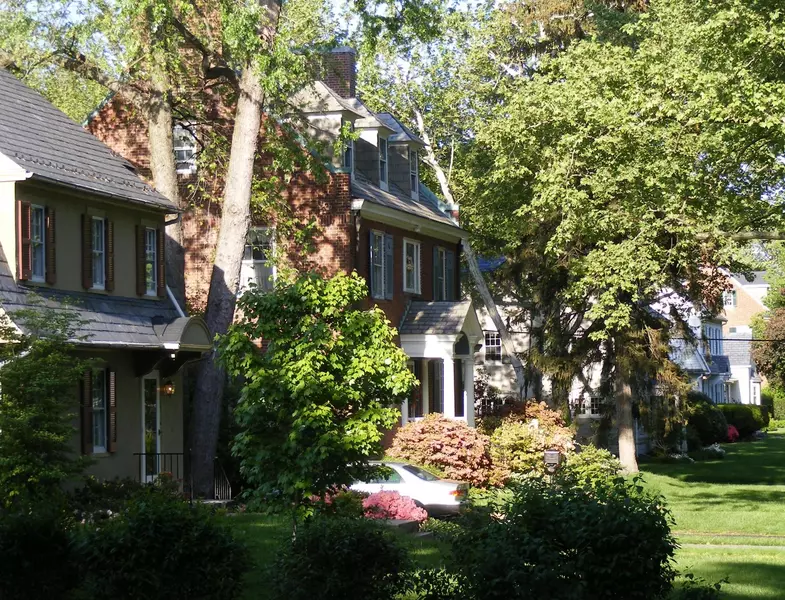
Cedarcroft
A charming community known for its historic architecture and peaceful streets

Hampden
A trendy and youthful area with a mix of modern townhouses and classic row homes.

Lake Evesham
A serene neighborhood offers a quiet suburban setting of cottages colonials and craftsman style homes.

Wyman Park

Towson

Patterson Park

Lake Walker

Forest Park

Evergreen Lawn

Abell

Original Northwood

Charles North

Lauraville

Arcadia

Liberty Square

Waverly

Moravia / Walther

Guilford

Harwood
Client Success Stories: The Key Home Team Making Real Estate Dreams Reality
Hear directly from satisfied clients who achieved their real estate aspirations with Mike Fielder and The Key Home Team. Our commitment to excellence resonates in every review.
Baltimore Real Estate Insights with Mike Fielder

VA Home Loan Benefits Many Veterans Don’t Know About
VA Home Loan Benefits Many Veterans Don’t Know About
For over 79 years, VA home loans have been a life-changing benefit for Veterans, making homeownership more accessible. But did you know that only 3 in 10 Veterans realize they could buy a home without needing a down payment? If you’re a Veteran, understanding the advantages of a VA loan could make all the difference in your homebuying journey. What Are VA Home Loans? A VA home loan is a mortgage specifically designed for Veterans, active-duty service members, and their families. Created to recognize and reward the sacrifices of those who serve, this program offers unique benefits to make homeownership more affordable and accessible. Top Benefits of VA Home Loans No Down PaymentThe most significant advantage of a VA loan is the potential to buy a home with no down payment. This means Veterans can own a home without needing to save thousands of dollars upfront—making the dream of homeownership more achievable, even sooner. Lower Closing CostsWith a VA loan, closing costs are limited, so Veterans don’t have to worry about excessive fees when it’s time to finalize the sale. This keeps more money in your pocket to put toward moving expenses, furniture, or other homeownership needs. No Private Mortgage Insurance (PMI)VA loans don’t require PMI, which most conventional loans do, especially if the buyer makes a smaller down payment. Skipping PMI means a lower monthly mortgage payment and substantial savings over the life of the loan. Why Work with a Real Estate Expert? If you’re ready to explore your VA loan options, connect with a real estate team experienced in VA loans. A local agent and a trusted lender can guide you through each step, ensuring you understand all the benefits and choose the best options for your financial future. Conclusion Homeownership is a key part of the American Dream, and for Veterans, VA home loans make that dream much more attainable. Whether you’re a Veteran or know one, don’t miss out on this valuable benefit. Let’s connect today to discuss your options and make the dream of owning a home a reality.
MORE
The Essential Breakdown of Home Selling Costs
The Essential Breakdown of Home Selling Costs
The Essential Breakdown of Home Selling Costs Image Source: pexels Selling your home involves more than just finding a buyer. You might be wondering how much it costs to sell your house. Get the breakdown of key expenses and how to save! Understanding these costs is crucial for making informed decisions. The National Association of Realtors highlights that selling typically costs 10% to 15% of your home's sale price. This includes agent commissions, closing costs, and more. By knowing these expenses, you can better manage your Personal Finance and ensure you profit and prosper. Stay informed with our Newsletter for tips on navigating the home-selling process. Wondering how much it costs to sell your house? Get the breakdown of key expenses and how to save! Overview of Home Selling Costs When you're ready to sell your home, understanding the various costs involved is crucial. These expenses can significantly impact your final profit. Let's break down the common and additional costs you might encounter. Common Costs Involved Agent Commissions Real estate agent commissions often represent the largest single expense when selling a home. Typically, these fees range from 3% to 6% of the sale price. This cost covers the agent's services, including marketing your home and negotiating with buyers. While it might seem steep, having a professional guide you through the process can be invaluable. Closing costs are another significant expense. These fees, which can range from 1% to 3% of the home's sale price, cover various charges like attorney's fees, transfer taxes, and title insurance. According to Kiplinger, these costs can add up quickly, so it's essential to budget for them in advance. Closing costs are another significant expense. These fees, which can range from 1% to 3% of the home's sale price, cover various charges like attorney's fees, transfer taxes, and title insurance. According to Kiplinger, these costs can add up quickly, so it's essential to budget for them in advance. Repairs and Renovations Before listing your home, you might need to tackle some repairs or renovations. These improvements can enhance your home's appeal and potentially increase its value. However, they also add to the overall cost of selling. Consider focusing on essential repairs that will offer the best return on investment. Additional Costs to Consider Staging and Photography Staging your home can make a significant difference in how quickly it sells and at what price. Professional staging and high-quality photography can highlight your home's best features, attracting more potential buyers. While this is an additional cost, it can be a worthwhile investment. Marketing and Advertising Marketing your home effectively is key to reaching a broad audience. This might include online listings, traditional advertising methods, or even open houses. The cost of marketing can vary, but it's an essential part of the selling process. Kiplinger Today newsletter suggests that well-executed marketing strategies can help you save money by reducing the time your home spends on the market. Moving Expenses Once your home is sold, you'll need to consider the cost of moving. Whether you're hiring professional movers or renting a truck, these expenses can add up. Planning ahead and comparing options can help you save money during this transition. Understanding these costs will help you manage your finances better and ensure a smoother selling process. By being aware of both common and additional expenses, you can make informed decisions and maximize your profit. Detailed Breakdown of Specific Costs Agent Commissions Real estate agent commissions often represent the largest expense when selling a home. Understanding these costs can help you make informed decisions. Standard Commission Rates Typically, real estate commissions range from 3% to 6% of your home's sale price. This fee can cover both the listing agent and the buyer's agent. For example, if your home sells for $200,000, you might pay between $6,000 and $12,000 in commissions. These fees compensate agents for their expertise in marketing your home and negotiating with buyers. Negotiating Commission Fees You might not know that agent commissions are negotiable. Many sellers aren't aware of this, but you can discuss commission rates with your agent. Some agents offer reduced fees, which can save you thousands of dollars. If you're looking to cut costs, consider working with an agent who charges lower fees. This strategy can significantly reduce your selling expenses. Marketing and Advertising Costs Marketing plays a crucial role in selling your home. Effective advertising can attract more potential buyers and help your home sell faster. Online Listings Online listings are a popular way to market your home. Websites like Zillow and Realtor.com allow you to reach a broad audience. While some platforms charge a fee, others offer free listings. Investing in high-quality photos and detailed descriptions can make your listing stand out. Traditional Advertising Methods Traditional advertising methods, such as newspaper ads and flyers, can also be effective. These methods might cost more than online listings, but they can reach local buyers who prefer traditional media. Consider using a mix of both online and traditional advertising to maximize your reach. Taxes and Legal Fees Taxes and legal fees are essential considerations when selling your home. These costs can vary depending on your location and the specifics of your sale. Capital Gains Tax If you sell your home for more than you paid, you might owe capital gains tax. However, many sellers qualify for exemptions. For example, if you've lived in your home for at least two of the last five years, you might exclude up to $250,000 of the gain from your taxes. Transfer Taxes Transfer taxes vary by state and can affect your overall costs. Some states charge a flat fee, while others base the tax on the sale price. It's essential to research your state's transfer tax rates to budget accordingly. Legal Documentation Fees Legal documentation fees cover the cost of preparing and reviewing the necessary paperwork for your sale. These fees might include attorney's fees, title search fees, and other related expenses. While these costs can add up, they ensure that your sale complies with all legal requirements. Understanding these specific costs will help you navigate the home-selling process more effectively. By being aware of these expenses, you can plan your budget and maximize your profit. Selling with an Agent vs. Selling Independently Image Source: pexels When you're selling a house, deciding whether to use a real estate agent or go it alone is a big choice. Let's explore the pros and cons of each option. Pros and Cons of Using a Real Estate Agent Benefits of Professional Guidance Using an agent can make selling your home smoother. Agents have extensive market knowledge and can help you set a realistic price. According to Clever Real Estate, homes sold with an agent often fetch a higher price—up to $70,000 more than those sold without one. This expertise can lead to a more satisfying sale. They know how to attract buyers and can guide you through the entire process. This professional support can save you time and stress. Costs Associated with Agent Services Of course, using an agent comes with costs. Agent fees, typically 3% to 6% of the home sale price, cover their services. These fees might seem high, but they often pay off in the end. You get expert advice and a potentially higher selling price, which can offset the cost. Considerations for Selling Independently Potential Cost Savings Selling independently, or For Sale By Owner (FSBO), can save you money on agent fees. You won't pay the typical agent commission, which can be appealing if you're looking to cut costs. This approach might work well if you're comfortable handling marketing and negotiations yourself. Challenges and Risks However, selling a house on your own has its challenges. Without an agent, you might miss out on valuable market insights. Clever Real Estate notes that nearly half of FSBO sellers believe they could have sold for more with an agent. You also take on all the responsibilities, from pricing to closing. Finding buyers and managing paperwork can be daunting. Mistakes in these areas might lead to delays or legal issues. Weighing these risks against potential savings is crucial. In the end, whether you choose an agent or go solo depends on your comfort level and priorities. Consider the costs, benefits, and challenges to make the best decision for your situation. Save Money Selling Image Source: unsplash Selling your house doesn't have to drain your wallet. You might be wondering how much it costs to sell your house? Get the breakdown of key expenses and how to save! With a few smart strategies, you can keep more money in your pocket. Let's explore some practical tips to help you save money selling a house. Wondering how much it costs to sell your house? Get the breakdown of key expenses and how to save! Tips for Reducing Costs Declutter and Stage Yourself: Before listing your house, take time to declutter. A tidy home looks more appealing to buyers. According to a HomeLight survey, decluttering can increase your sale price by an estimated $8,000. You don't need to hire a professional stager. Use your own furniture and decor to create a welcoming atmosphere. Negotiate Agent Fees: Real estate agents typically charge 3% to 6% of the sale price. However, you can negotiate these fees. Some agents might offer reduced rates, especially if you're selling a high-value house. Don't hesitate to discuss commission options with your agent. DIY Repairs: Minor repairs can enhance your home's appeal. Instead of hiring professionals, tackle small projects yourself. Fix leaky faucets, paint walls, or replace broken tiles. These simple updates can make a big difference without breaking the bank. Use Free Marketing Tools: Promote your house using free online platforms. Websites like Zillow and social media can reach a wide audience without costing a dime. Share high-quality photos and engaging descriptions to attract potential buyers. Effective Budgeting Strategies Set a Realistic Budget: Before you start the selling process, outline all potential costs. Include agent fees, closing costs, and moving expenses. Having a clear budget helps you manage your finances and avoid surprises. Prioritize Essential Expenses: Focus on costs that directly impact your sale. Invest in necessary repairs and effective marketing. Avoid spending on unnecessary extras that won't significantly boost your house's value. Plan for Moving Costs: Once your house sells, you'll need to move. Compare moving companies and consider DIY options to save money. Planning ahead can help you find the best deals and reduce stress during the transition. By following these tips, you can save money selling a house and maximize your profit. Remember, every dollar saved is a dollar earned. Wondering how much it costs to sell your house? Get the breakdown of key expenses and how to save! With careful planning and smart decisions, you can navigate the selling process with confidence. Understanding the costs of selling a house is crucial for making informed decisions. By knowing these expenses, you can avoid financial surprises and manage your budget effectively. Consider all factors, from agent fees to closing costs, when planning your sale. This awareness helps you maximize profits and safeguard your financial interests. Whether you choose to work with an agent or sell independently, being prepared for these costs ensures a smoother selling process. Remember, every dollar saved in fees is a dollar earned. Make informed choices to navigate the selling journey confidently.
MORE
Two Reasons Why the Housing Market Won’t Crash
Two Reasons Why the Housing Market Won’t Crash
You’ve probably heard some chatter about the economy lately, maybe even some whispers about a possible recession. And let’s be real, that kind of talk tends to make people nervous about the housing market. But here’s the good news—there’s no need to panic. The housing market isn’t about to crash. Let me explain why. Real estate journalist Michele Lerner defines a housing market crash as when “home values plummet due to a lack of demand for homes or an oversupply.” With that in mind, here are two key reasons why a crash just isn’t in the cards right now. 1. Demand for Homes Is Higher Than Supply One of the biggest reasons behind the 2008 housing crash was an oversupply of homes. There were just too many houses and not enough buyers. Well, today’s market is the complete opposite of that. Generally speaking, a balanced housing market has about a six-month supply of homes. That means there’s enough inventory to meet demand without prices falling or spiking. Now, let’s take a look at where we stand today, thanks to some data from the National Association of Realtors (NAR). In the lead-up to the 2008 crisis, there was a whopping 13-month supply of homes—far too much. Today, though, we’re looking at just 4.2 months of supply. That’s well below what’s considered balanced, which means demand is outpacing supply big time. When there are more buyers than there are homes available, prices tend to stay stable or even increase—not crash. Now, to be fair, inventory levels can vary depending on the market. Some areas might be more balanced, while others could have a slight oversupply, which could affect local prices. But nationally, the housing market is dealing with a shortage of homes. That’s a huge difference compared to 2008. As Lawrence Yun, Chief Economist at NAR, puts it:"We simply don’t have enough inventory. Will some markets see a price decline? Yes. [But] with the supply not being there, the repeat of a 30 percent price decline is highly, highly unlikely." Want more insights on Baltimore specifically? Check out my post on Is Now the Right Time to Buy a Home in Baltimore?. 2. Unemployment Is Still Low Another key factor that drove the 2008 crash was unemployment. As people lost their jobs, they couldn’t make mortgage payments, which led to a wave of foreclosures. That, in turn, put more homes on the market, causing prices to plummet. But today’s employment picture looks a lot different. Here’s a quick look at where unemployment stands right now compared to the 2008 crisis and the long-term average: Back in 2008, unemployment was sky-high at 8.3%. The 75-year average is around 5.7%. And today? We’re sitting at just 4.1%. More people are working, which means more people can make their mortgage payments. That’s a big reason why we’re not seeing a wave of foreclosures like we did back then. In fact, with so many people still working, we’re seeing plenty of demand for homes, which helps keep prices up. To get more context on how employment and housing market trends are playing out in Baltimore, you might want to check out Top 5 Things to Know About the Baltimore Housing Market. Today’s Housing Market Is Stronger Than in 2008 It’s totally natural to feel uneasy with all the talk about a recession and economic uncertainty. But the housing market today is nowhere near where it was in 2008. As Rick Sharga, Founder and CEO of CJ Patrick Company, says:"Literally everything is different about today’s housing market dynamics than the conditions that led to the housing crisis." So, what does that mean for you? Simply put: Demand for homes is still high, supply is low, and people are working. These key factors are going to keep the housing market stable, preventing a repeat of the 2008 crash. Bottom Line Look, the housing market today is in a much better place than it was in 2008. But remember, real estate is local. So, if you have any questions about how these national trends are impacting our Baltimore market, feel free to reach out. I’m here to help you navigate it all and make the best decisions for your situation. If you want to dive deeper, check out my post on Why Baltimore Is Still a Hot Real Estate Market in 2024.
MORE
Now’s the Time To Upgrade to Your Dream Home In Baltimore
Now’s the Time To Upgrade to Your Dream Home In Baltimore
If you’ve been dreaming about upgrading to a bigger or nicer home, you’re not alone. Many Baltimore homeowners are feeling the same way. In fact, according to a recent survey, the top motivator for today’s homebuyers is the desire for more space or an upgraded home. But if you’ve been holding off on making that move due to concerns about the market, you might want to think again—now’s actually the perfect time to act. Why Now Is the Best Time to Upgrade Your Home With interest rates fluctuating and housing costs top of mind, it’s easy to see why many are waiting for the "right" moment to upgrade. But here’s the deal: several key factors are aligning to make now the ideal time to trade up. Let’s dive into why this is especially true for Baltimore homeowners. 1. You Have a Lot of Equity To Leverage One of the most significant advantages in today’s market is the amount of equity many homeowners have built up. Thanks to rising home prices, most Baltimore homeowners are sitting on a substantial amount of equity. According to Selma Hepp, Chief Economist at CoreLogic: “Persistent home price growth has continued to fuel home equity gains for existing homeowners, who now average about $315,000 in equity.” This means if you’ve been in your home for several years, you're likely in a great position to put that equity to good use. The funds from selling your current home could go toward the down payment on your new dream home. This would help keep your mortgage loan smaller, making the move more affordable than you might have thought. Curious how much equity you've built up? I can help you with a professional equity assessment. Contact me today to learn how much leverage you really have! If you’re thinking about selling your home, check out this helpful guide: Selling Your Home in Baltimore: What You Need to Know. 2. Mortgage Rates Are Falling, Boosting Your Purchasing Power Another reason why now is the right time to upgrade is that mortgage rates have recently been trending down. This is great news for buyers because lower rates mean more purchasing power. Nadia Evangelou, Senior Economist and Director of Real Estate Research at the National Association of Realtors, explains: “When mortgage rates fall, the interest portion of monthly payments decreases, which lowers the total payment. This makes it easier for more borrowers to qualify for mortgages that may have been unaffordable at higher rates.” In other words, if you were worried about the affordability of upgrading your home, lower mortgage rates can help make those monthly payments much more manageable. You might even find that the home you thought was out of reach is suddenly within your budget. You can also explore other prime opportunities in the local market by reading Why Now’s a Great Time to Buy in Baltimore. 3. The Baltimore Market Has Plenty of Opportunity Here in Baltimore, there’s no shortage of fantastic neighborhoods and properties to choose from. Whether you’re looking for more space in the suburbs like Catonsville or Ellicott City, or you want to upgrade to a modern, spacious home in a popular area like Federal Hill or Canton, there’s something for everyone. Upgrading your home doesn’t have to mean leaving the city. Baltimore’s real estate market has plenty of hidden gems just waiting to be found. For an overview of some great areas, take a look at our Baltimore Neighborhood Guide. And with rates down and equity up, it’s a prime time to make your move. What’s Next? Let’s Connect and Make It Happen! If you’re ready to sell your current home and find the bigger, nicer home you’ve been dreaming of, don’t wait any longer. Your equity, paired with today’s lower mortgage rates, puts you in a great position to upgrade. The Baltimore real estate market is full of opportunities, and with the right expert on your side, you can make the best move possible. Get in touch with me today to learn more about how we can make your dream home a reality. For more insights on the housing market, check out CoreLogic's Real Estate Market Insights.
MORE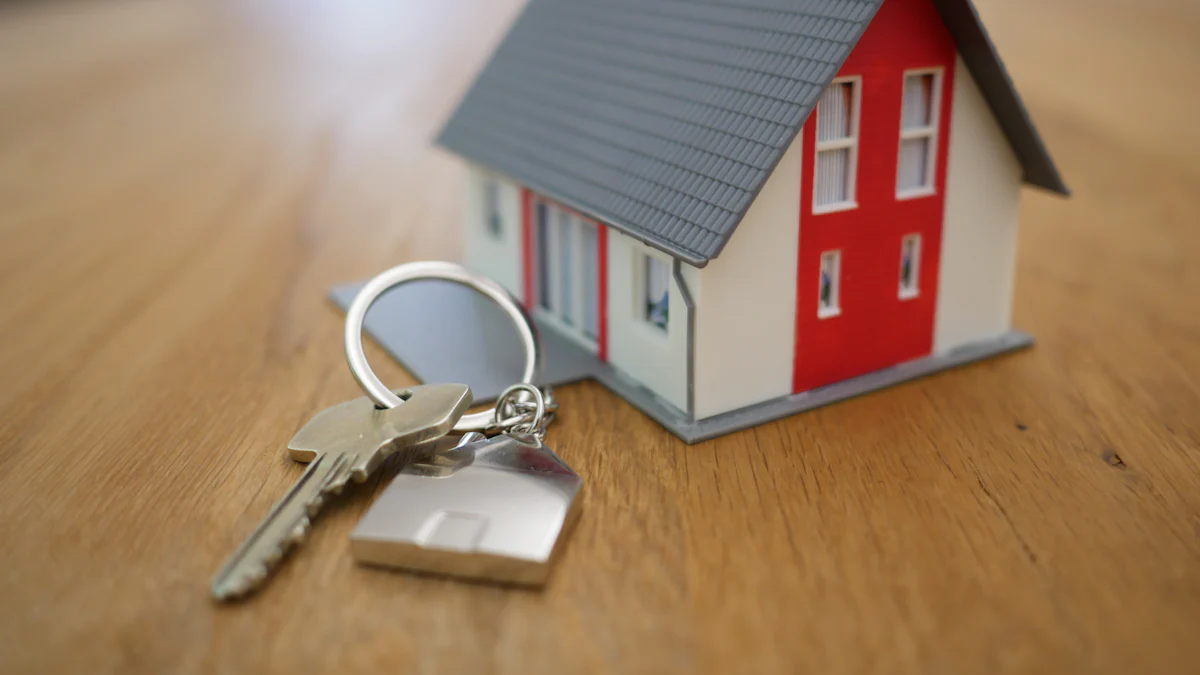
Baltimore Real Estate: Normalization and Future Prices
Baltimore Real Estate: Normalization and Future Prices
Image Source: unsplash Baltimore's real estate market has experienced significant changes recently. The city saw an 11.02% appreciation rate over the last year, making it a hotspot for investors. Understanding Baltimore real estate market normalization and future price trends is crucial for making informed decisions. This blog aims to provide valuable insights and predictions to help navigate the evolving landscape. Current State of Baltimore Real Estate Image Source: unsplash Market Overview Recent Trends Baltimore's real estate market has shown remarkable resilience and growth. Over the past year, home prices in Baltimore appreciated by 8.8%. This significant appreciation rate has attracted many investors. The city experienced a 4.3% increase in median sale prices in June 2024 compared to the previous year. Despite a slowing market, housing prices in Maryland continue to rise about 2.5% per quarter. Key Statistics Median Sale Price: $205,000 in Baltimore City. Home Value Increase: 8.8% rise over the past year. Median Income: $83,811. Average House Price: $240,000 last month, showing a 4.3% increase. Factors Influencing the Market Economic Indicators Economic indicators play a crucial role in shaping Baltimore's real estate market. High mortgage rates have influenced buyer demand. The city's economic growth has contributed to rising home prices. Analysts project positive earnings and revenue growth for S&P 500 companies in 2024. This indicates overall market growth, which can impact real estate prices. Demographic Changes Demographic changes also affect the market. Baltimore's population dynamics have shifted, influencing housing demand. The city remains an affordable metro area, attracting new residents. The low cost of living makes Baltimore an attractive option for potential residents. Housing affordability remains a concern, with prices continuing to climb. Comparison with Other Cities Regional Trends Baltimore's real estate market stands out compared to other cities in Maryland. The city has seen over 50% more appreciation than other towns and cities in the state. Homes in Baltimore sold for 2.4% more than a year ago. The city is a seller's market with higher prices and faster sales. National Trends On a national level, Baltimore's home prices have appreciated by double digits since 2014. The city offers affordable real estate prices compared to major US cities like San Francisco, Los Angeles, and New York. Rent growth in Baltimore is significant, with low housing inventory relative to demand. Despite the housing market slowdown, experts believe prices will continue to climb in the near future. Baltimore Real Estate Market Normalization Definition and Importance What is Market Normalization? Market normalization refers to the process where real estate prices and trends stabilize after periods of rapid change. This stabilization often follows significant fluctuations in home prices, sales volumes, and inventory levels. The Baltimore real estate market normalization aims to achieve a balanced state, reducing extreme volatility. Why It Matters Understanding Baltimore real estate market normalization is crucial for buyers, sellers, and investors. A normalized market provides predictability, making it easier to make informed decisions. Stability in the market reduces risks associated with sudden price drops or spikes. This predictability benefits long-term planning and investment strategies. Historical Context Past Market Volatility The Baltimore real estate market has experienced periods of significant volatility. Rapid price increases and decreases have characterized the market over the past decades. Economic downturns and booms have influenced these fluctuations. The 2008 financial crisis serves as a notable example of such volatility. Lessons Learned Past market volatility offers valuable lessons. Investors and homeowners must understand the importance of market cycles. Recognizing the signs of an overheating market can prevent poor investment decisions. The Baltimore real estate market normalization helps mitigate risks associated with extreme market conditions. Indicators of Normalization Price Stability Price stability is a key indicator of Baltimore real estate market normalization. Stable prices suggest that the market has reached a balanced state. This stability benefits both buyers and sellers by providing a predictable environment. Consistent price trends reduce the likelihood of sudden market shifts. Inventory Levels Inventory levels also indicate Baltimore real estate market normalization. A balanced inventory means that the supply of homes matches buyer demand. High inventory levels can lead to price reductions, while low levels can drive prices up. Achieving a balanced inventory ensures a healthy market dynamic. Future Price Predictions Image Source: unsplash Expert Opinions Real Estate Analysts Real estate analysts foresee a 1.7% rise in home values for 2024. This bullish market outlook in Baltimore suggests a promising future for investors and buyers. Specialists recommend making well-researched choices to thrive in this dynamic environment. Expert advice can guide potential stakeholders through the complexities of the market. This is slightly off from what most experts were predicting earlier this year. "Experts predict a moderate increase of 1.7% in the Baltimore-Columbia-Towson MSA market over the next year." — Real Estate Analysts Economic Forecasts Economic forecasts highlight several factors contributing to improved market conditions. The high number of available jobs plays a significant role. Steady property appreciation due to low inventory also supports the market. A large student population further boosts demand for housing. "Many factors are responsible for these improved market conditions, including the high number of jobs available, steady property appreciation due to low inventory, and a large student market." — Economic Forecasts Influencing Factors Economic Growth Economic growth significantly impacts future real estate prices in Baltimore. A robust economy attracts more residents and businesses. This increased demand drives up property values. Job creation and rising incomes further enhance the market's attractiveness. Policy Changes Policy changes can also influence real estate prices. Government initiatives to improve housing affordability may affect market dynamics. Tax incentives for homebuyers could stimulate demand. Conversely, stricter lending regulations might slow down the market. Potential Scenarios Optimistic Outlook An optimistic outlook envisions continued economic growth and stable market conditions. Home values could rise steadily, benefiting both buyers and sellers. Increased job opportunities and higher incomes would support this positive trend. Investors could expect healthy returns on their investments. Pessimistic Outlook A pessimistic outlook considers potential economic downturns or unfavorable policy changes. Reduced buyer demand could lead to slower price growth or even declines. High mortgage rates might deter potential buyers. Investors would need to exercise caution and adapt to changing market conditions. In conclusion, understanding future price predictions requires careful consideration of expert opinions and influencing factors. Both optimistic and pessimistic scenarios offer valuable insights for making informed decisions in Baltimore's real estate market. Baltimore's real estate market has shown resilience and growth. The city experienced a higher than anticipated appreciation rate over the last year. The market is normalizing, providing stability and predictability. Experts predict a 1.7% rise in home values for 2024. Investors should focus on well-researched choices. High mortgage rates and demographic changes influence the market. Real estate experts recommend consulting professionals for informed decisions. Potential buyers should consider Baltimore's affordability and economic growth. The city's low cost of living attracts new residents. Investing in Baltimore real estate offers promising opportunities.
MORE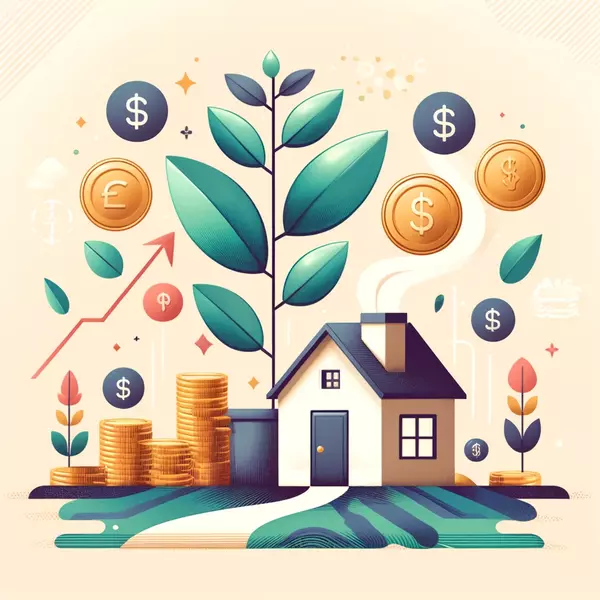
Maximize Your Tax Refund: The Smart Path to Homeownership in Baltimore
Maximize Your Tax Refund: The Smart Path to Homeownership in Baltimore
Unlock the Potential of Your Tax Refund for Your Dream Home in Baltimore Have you been meticulously saving up to buy a home this year in Baltimore? If you're closely watching your budget, you're likely aware of the various expenses involved in purchasing a home – from the crucial down payment to unavoidable closing costs. However, there's a seasonal financial perk that many tend to overlook – your tax refund. As the annual tax season draws to a close, many of us eagerly anticipate a refund. Credit Karma highlights a brilliant use for this windfall: "If buying a home is on your agenda, a tax refund can kickstart your journey to homeownership or accelerate your savings." The average tax refund is experiencing a bump up this year, with CNET reporting a 6.1% increase from the previous year, reaching an average of $3,081. This uptick can play a significant role in your home-buying budget. Here's how: Invest in Your Future with Your Tax Refund Boost Your Down Payment FundThe larger your down payment, the better the terms you might secure for your mortgage. Your tax refund can be a substantial contribution towards meeting your down payment goal, potentially saving you money in the long run. Cover Closing CostsTypically, closing costs can run between 2% and 5% of the home's purchase price. Your tax refund could significantly dent these expenses, making the financial burden of buying a home more manageable. Negotiate a Better Mortgage RateIn some cases, you can use your refund to buy down your mortgage rate. A lower rate means lower monthly payments, which can make a significant difference in your overall financial planning. Remember, working with a team of trusted real estate professionals can demystify the process and set you up for a successful purchase. Bottom Line: Your tax refund is more than just a bonus; it's an opportunity to make significant strides towards buying your home in Baltimore. If you're ready to explore how your tax refund can help you purchase a home, contact us. Your path to homeownership may be smoother than you think. For more insights into Baltimore's real estate scene and tips for homebuyers, check out our latest posts on navigating mortgage rates and making the most of your home-buying budget.
MORE
